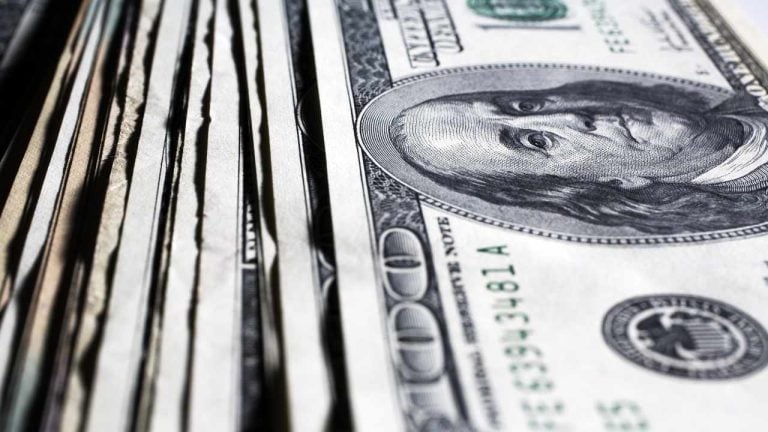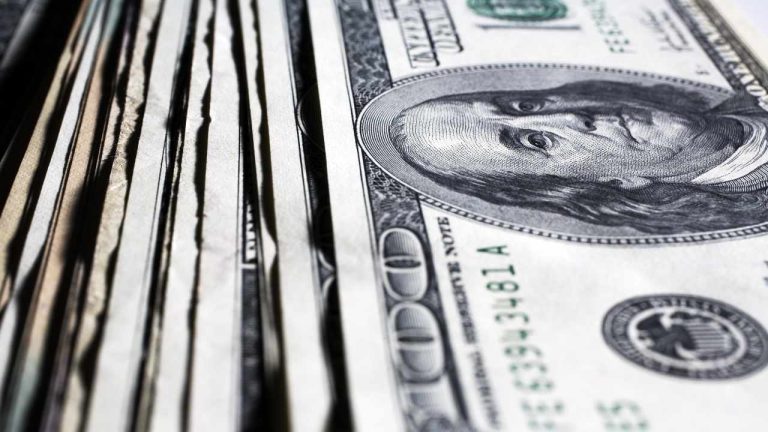Bank of America: Threats to US Dollar’s Dominance Largely Domestic — Not BRICS Currency or Chinese Yuan


Bank of America has warned that the key threats to the U.S. dollar’s dominance are largely domestic, as opposed to competition from other currencies, including a BRICS currency. “U.S. fiscal brinkmanship, with risks for government shutdown, or even worse a default, keeps coming up during debt ceiling discussions,” the bank’s analysts stressed.
Bank of America on Threats to U.S. Dollar’s Dominance
Bank of America reportedly said in a note Thursday that despite recent de-dollarization headlines, the U.S. dollar is not in danger of losing its dominance anytime soon. However, the bank warned that the USD is at risk from domestic fiscal issues, such as the possibility of the U.S. defaulting on its debt obligations.
“Because much of the USD’s dominant role comes from standing in front of the TSY [U.S. Treasury] market, surprise defaults from a debt ceiling showdown would compromise the dollar’s attractiveness as a store of value,” Bank of America’s analysts detailed, elaborating:
Therefore, the key threats to the USD’s dominant role seem largely domestic, as opposed to competition from other currencies.
The analysts cautioned that the long-term risk to the U.S. currency is complacency regarding debts, noting that, apart from Japan, U.S. government debt as a percentage of GDP is the highest in the G10. Moreover, the International Monetary Fund (IMF) predicts that the U.S. debt-to-GDP ratio will increase from 122% in 2022 to 136% by 2028.
Bank of America described:
U.S. fiscal brinkmanship, with risks for government shutdown, or even worse a default, keeps coming up during debt ceiling discussions.
U.S. Treasury Secretary Janet Yellen recently revealed that the Treasury may not be able to pay all of the government’s bills by June 1 “if Congress does not raise or suspend the debt limit before that time.” She also warned: “If Congress fails to increase the debt limit, it would cause severe hardship to American families, harm our global leadership position, and raise questions about our ability to defend our national security interests.”
Alternative Currencies to USD
Despite the danger of the U.S. defaulting on its debt obligations and a rising de-dollarization trend, Bank of America believes that there are no viable alternative currencies to the U.S. dollar and the USD remains the dominant currency in trade, international invoicing, and SWIFT payments. Nonetheless, the analysts cautioned that the U.S. dollar has lost some market share among central bank reserves.
The analysts wrote:
USD not about to lose its exorbitant privilege … no single alternative has appeared.
Bank of America further noted that the use of the Chinese yuan could expand internationally but stressed that Chinese regulators would need to open up its capital account, which could make China vulnerable to outflow volatility and monetary policy interference.
In addition, the Bank of America analysts believe that a BRICS currency is unlikely to replace the U.S. dollar as the world’s reserve currency, as it would require cooperation among member countries that have limited trade with one another, aside from China, and whose relations can often be tense. The BRICS nations comprise Brazil, Russia, India, China, and South Africa. The economic bloc has been gaining influence globally. Nineteen countries have either applied to join or have expressed interest in joining.
However, multiple economists expect a common BRICS currency to erode the U.S. dollar’s dominance. A Swedish university professor recently said that Saudi Arabia joining the BRICS group would accelerate the use of the Chinese yuan as a trading currency.
Do you agree with Bank of America about the U.S. dollar’s dominance? Let us know in the comments section below.








